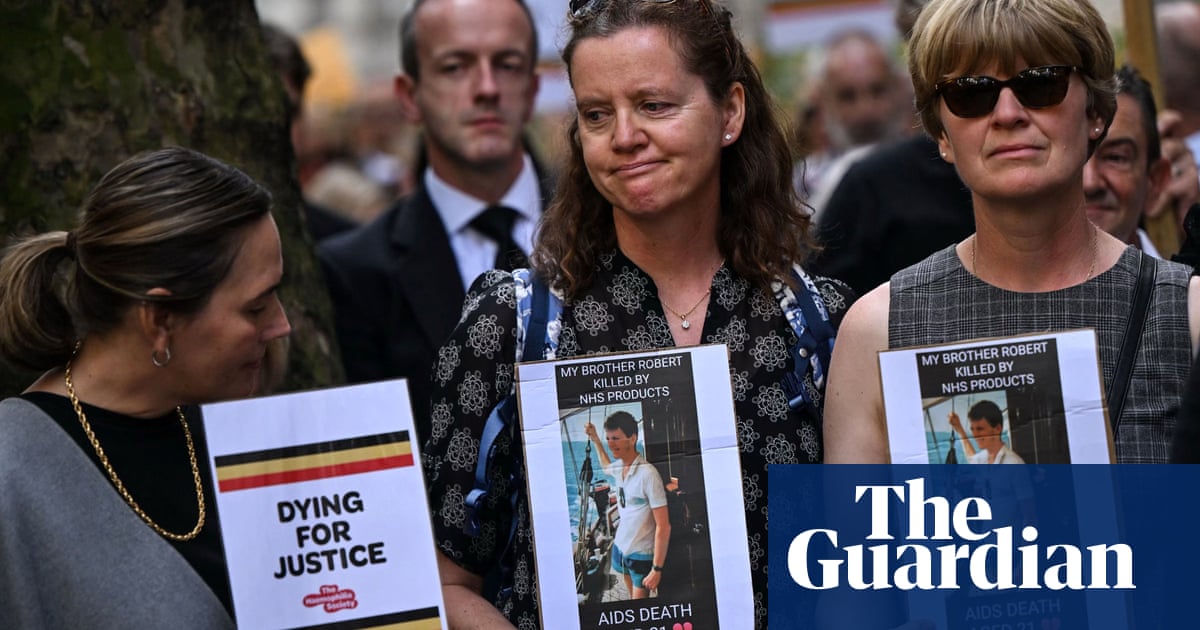
Victims of the infected blood scandal – seen as one of the worst treatment disasters in the history of the NHS – have raised concerns about the government’s pledged compensation scheme.
There are worries that existing payments could be conflated as being part of the wider compensation scheme.
Cabinet Office minister John Glen said there would be “no immediate changes made to the support schemes”, but how does it all work?
Who will get compensation?
People across the UK who were directly and indirectly infected with HIV, hepatitis C and hepatitis B will be eligible for compensation.
The government scheme also includes people who have been affected by the scandal in other ways, whether they are partners or parents of victims, or those who have cared for people infected for at least a year.
Children and siblings of victims are also eligible for compensation. Official guidance notes that children who were under the age of 18 and lived with their infected parent for at least a year will receive higher rates of compensation than those whose parents were infected when they were adults.
It is understood “the bar will be set very low” when it comes to proving whether you cared for someone with infected blood.
How will the compensation scheme work?
Compensation will be awarded in five categories:
An injury impact award, to recognise the physical and mental injury the infection has caused victims.
A social impact award to acknowledge the stigma or social isolation.
An autonomy award.
A care award.
A financial loss award.
The amount of money people receive will also depend on the severity of infection they suffered in relation to the government’s bands, laid out as follows:
Hepatitis B or hepatitis C acute, defined as an infection shorter than six months.
Hepatitis C or hepatitis B chronic, defined as infections longer than six months.
Hepatitis C or bepatitis B cirrhosis, which left long-term liver damage.
Hepatitis C or hepatitis B – decompensated cirrhosis
HIV.
Co-infection of HIV and hepatitis C or hepatitis B.
How much compensation will victims get and when?
Payments of £210,000 will be made to living infected beneficiaries, those registered with existing infected blood support schemes and those who register with the support scheme before the final scheme becomes operational, the Cabinet Office minister said. These payments will be made within 90 days, starting in the summer.
People living with a single infection can expect to receive:
Hepatitis C (acute): £35,500.
Hepatitis C or hepatitis B (chronic): £665,000 to £810,000.
Hepatitis C or hepatitis B (cirrhosis): £985,000 to £1,130,000.
Hepatitis C or hepatitis B (decompensated cirrhosis, and/or liver cancer and/or liver transplantation): £1,412,000 to £1,557,000.
HIV: £2,225,000 to £2,615,000.
Compensation for infected victims living with a co-infection can expect to receive:
HIV and hepatitis C/ hepatitis B (acute): £2,257,500 – £2,647,500.
HIV and hepatitis C/ hepatitis B (chronic): £2,270,000 – £2,660,000.
HIV and hepatitis C/ hepatitis B (cirrhosis): £2,315,000 – £2,705,000.
HIV and hepatitis C/ hepatitis B (decompensated cirrhosis: £2,345,000 – £2,735,000.
HIV and hepatitis C/ hepatitis B (liver cancer and/or liver transplantation): £2,345,000 – £2,735,000.
Hepatitis C and hepatitis B (chronic): £730,000 – £1,642,000 (depending on severity band).
What about existing support schemes?
Official guidance states that existing support payments will continue until March 2025, and the government has said no deductions will be made from any other compensation awards people are entitled to.
From 1 April 2025, any support payments people receive will be counted towards their final compensation reward. Glen said this is to “ensure parity between support scheme beneficiaries regardless of whether they were first or the last to have their compensation assessed by the infected blood compensation authority”.












